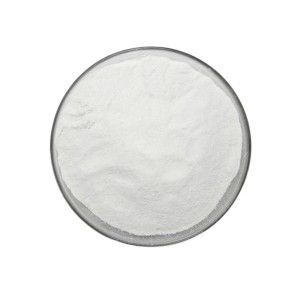Products
-

4,4′-oxydiphthalic anhydride/ODPA CAS:1478-61-1
4,4′-oxydiphthalic anhydride, also known as ODPA, is an organic compound widely used in various industries. It is a white crystalline substance that possesses excellent heat resistance, chemical stability, and electrical insulation properties. ODPA is primarily utilized as a key building block in the production of heat-resistant and high-performance polymers.
-

4,4′-BIS(3-AMINOPHENOXY)DIPHENYL SULFONE/BAPS-M cas:30203-11-3
4,4′-bis(3-aminophenoxy)diphenylsulfone, also known as CAS 30203-11-3, is a high-quality chemical compound that finds extensive use in different sectors of the industry. This compound is produced utilizing advanced manufacturing techniques and adhering to strict quality control standards to ensure purity and effectiveness.
-

4,4′-Oxybis(benzoyl Chloride)/DEDC cas:7158-32-9
4,4-chloroformylphenylene ether, also known as CFPE, is a chemical compound that finds substantial utility in a wide range of industrial applications. It is a yellowish powder with a molecular formula of C8H4Cl2O and a molecular weight of 191.03 g/mol. CFPE is primarily used as a reactive intermediate in various syntheses, enabling the production of high-performance polymers and copolymers.
-

4,4′-Bis(4-aminophenoxy)biphenyl cas:13080-85-8
4,4′-bis(4-aminophenoxy)biphenyl is an organic compound with a molecular formula C24H20N2O2. Also known as Dianisidine, this substance exists as a solid powder that is readily soluble in organic solvents. Due to its unique molecular structure and physiochemical characteristics, this chemical finds wide-ranging use as an intermediate in the synthesis of dyes, pigments, and pharmaceuticals, among other applications.
-
![2,2′-Dimethyl-[1,1'-biphenyl] -4,4′-Diamine/M-Tolidine cas:84-67-3](https://cdn.globalso.com/wenzhoubluedolphin/5.15-300x300.jpg)
2,2′-Dimethyl-[1,1'-biphenyl] -4,4′-Diamine/M-Tolidine cas:84-67-3
1,4-bis(4-aminophenoxy)benzene, also known as cas84-67-3, is a key chemical compound extensively used in various industries. With its remarkable properties and versatile applications, it plays a vital role in the manufacturing of polymers, organic materials, and many other valuable products.
-

4,4′-DIAMINOBIPHENYL-2,2′-DICARBOXYLIC ACID cas:17557-76-5
4,4′-diaminobiphenyl-2,2′-dicarboxylic acid, also known as DABDA, is a chemical compound with the molecular formula C16H14N2O4. It is a white crystalline powder that is highly soluble in organic solvents such as ethanol, acetone, and methanol. DABDA possesses unique chemical properties that make it suitable for a multitude of applications.
This chemical compound finds extensive use in the field of polymer research and development. Due to its high thermal stability and good mechanical properties, DABDA is commonly used as a building block in the synthesis of advanced polymers. These polymers have a wide range of applications, including coatings, adhesives, and electrical insulators.
Furthermore, DABDA exhibits excellent electrochemical properties, making it an ideal candidate for the development of high-performance electrochemical devices. It is widely employed in the fabrication of electrodes for supercapacitors and lithium-ion batteries. With its exceptional conductivity and stability, DABDA contributes to the overall performance and lifespan of these energy storage systems.
-

3,4′-Oxydianiline/3,4′-ODA cas:2657-87-6
3,4′-diaminodiphenyl ether, also known as DPE, is a chemical compound primarily used in various industrial applications. Its molecular formula is C12H12N2O, and it has a molecular weight of 200.24 g/mol. DPE is a white to off-white powder that is soluble in organic solvents but insoluble in water. With a purity level of 99% or higher, our high-quality DPE is well-regarded in the industry.
-

3,3′-Dihydroxybenzidine/HAB cas:2373-98-0
3,3′-dihydroxybenzidine is a pale yellow crystalline powder that is both odorless and soluble in a variety of organic solvents. Its molecular formula is C12H12N2O2, and it has a molecular weight of 216.24 g/mol. This compound exhibits a high melting point of approximately 212-216°C, indicating its stability under various temperature conditions.
-

3,3′,4,4′-Biphenyltetracarboxylic dianhydride/BPDA cas:2420-87-3
3,3′,4,4′-biphenyltetracarboxylic dianhydride, also referred to as BPDA dianhydride, is a white crystalline powder that hails from the aromatic dianhydride family. Its chemical formula, C20H8O6, showcases the intricate arrangement of atoms responsible for its exceptional characteristics. BPDA dianhydride demonstrates high thermal and chemical stability, making it a highly sought-after compound in the world of materials science and technology.
-

3,3′,4,4′-Benzophenonetetracarboxylic dianhydride/BTDA CAS:1478-61-1
3,3′,4,4′-Benzophenone Tetraacid Dianhydride is a cyclic compound derived from the condensation of benzophenone tetracarboxylic acid, making it an essential building block for the synthesis of polyimide resins. Known for its exceptional thermal stability, BPTAD is particularly favored for its ability to enhance the mechanical strength and electrical properties of various materials.
-

3,3,4,4-diphenylsulfonetetracarboxylicdianhydride/DSDA cas:2540-99-0
3,3,4,4-diphenylsulfonetetracarboxylic dianhydride is a white crystalline compound renowned for its exceptional chemical stability and unique structural properties. With a molecular formula of C20H8O7S2, this substance finds extensive use in various fields, including polymer chemistry, material science, and electronics.
-

2,3,3′,4-biphenyltetracarboxylic dianhydride/α-BPDA CAS:36978-41-3
2,3,3′,4-biphenyltetracarboxylic dianhydride is a highly versatile and efficient chemical compound that has gained significant recognition for its exceptional qualities. With its CAS number 36978-41-3, this compound has become a key ingredient in several industrial processes worldwide. It boasts excellent chemical stability, outstanding thermal resistance, and remarkable mechanical properties, making it an ideal choice for numerous applications.


